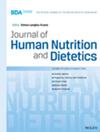The Role of the Dietitian Within a Day Programme for Adolescent Anorexia Nervosa: A Reflexive Thematic Analysis of Child and Adolescent Eating Disorder Clinician Perspectives
Abstract
Background
Family therapy for anorexia nervosa (FT-AN) is the first-line outpatient treatment for young people with anorexia nervosa (AN) in the UK. However, some require more intensive interventions, such as day programmes (DPs), which provide structured multidisciplinary care, including nutritional rehabilitation. Despite the integral role of dietitians in DPs, their specific responsibilities remain under-researched. This study explores clinician perspectives on the role of dietitians in adolescent AN treatment to inform future research and consensus guidelines.
Methods
A qualitative study using semi-structured interviews was conducted with 11 clinicians working in one DP for young people with AN. Participants were recruited from the Intensive Treatment Programme at the Maudsley Centre for Child and Adolescent Eating Disorders. Reflexive thematic analysis identified key themes regarding dietitians' contributions to treatment.
Results
Clinicians emphasised the dietitian's role in early treatment containment, reinforcing therapeutic approaches and empowering parents in meal planning and nutritional rehabilitation. Dietitians were seen as crucial in personalising treatment based on cultural and sensory needs and adapting meal plans as young people progressed. They also played a key role in guiding transitions between treatment phases, particularly from weight restoration to maintenance. However, challenges included an over-reliance on dietitians for nutritional decisions and a ‘good cop, bad cop’ dynamic, where therapists avoided difficult conversations about food.
Discussion
Findings highlight dietitians' essential role in DP treatment for AN but suggest that excessive reliance may limit therapist autonomy. Strengthening collaboration through shared decision-making and bidirectional learning is recommended. Further research should explore these dynamics across diverse settings.

 求助内容:
求助内容: 应助结果提醒方式:
应助结果提醒方式:


